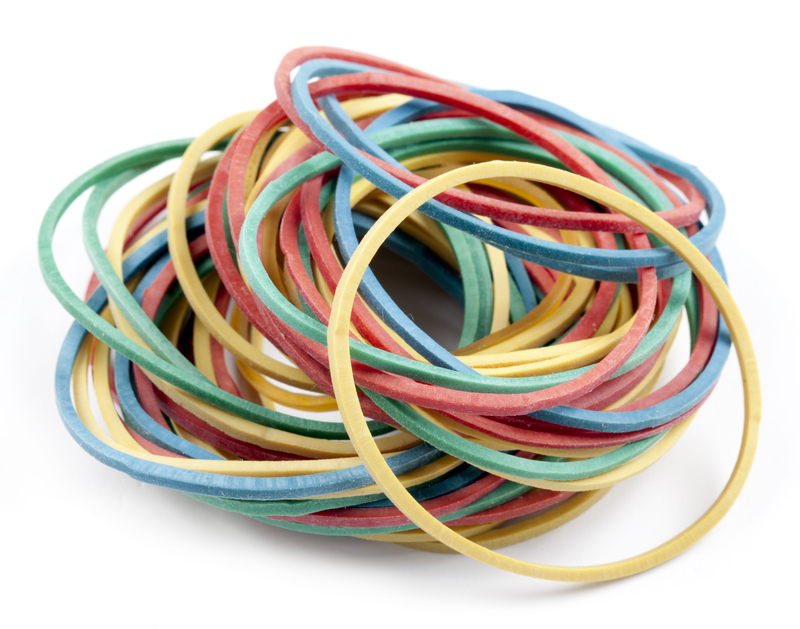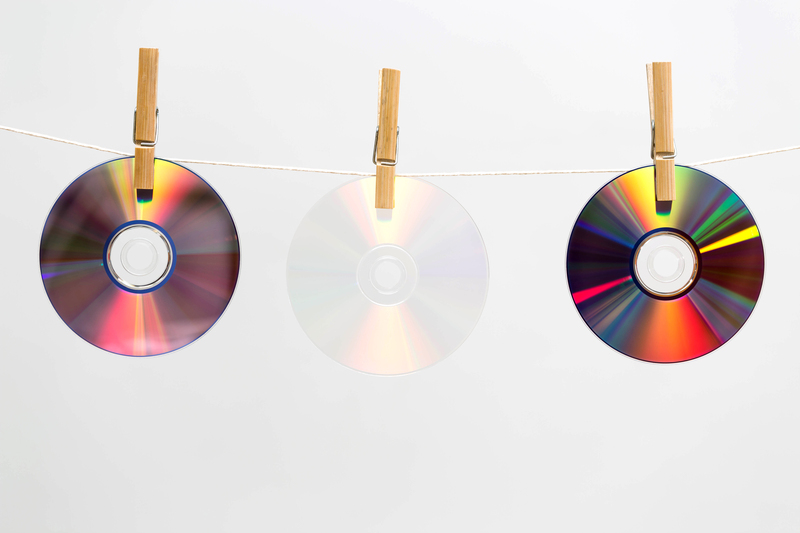How Charities and Scrap Yards Can Reuse Your Pots and Pans
Are you decluttering your kitchen and wondering what to do with old pots and pans? Instead of trashing them and contributing to landfill waste, consider donating or recycling your used cookware. This guide explores how charities and scrap yards can repurpose your pots and pans, benefiting both your community and the environment. You'll learn about the best places to donate old cookware, recycling metal kitchenware, creative reuse ideas, and sustainable cookware disposal solutions.
Why Reuse and Recycle Old Pots and Pans?
Every year, millions of kitchen items--especially metal pots, pans, and skillets--end up in landfills. Most cookware is made from materials such as stainless steel, aluminum, copper, iron, or nonstick composites, which can take hundreds of years to decompose. By reusing or recycling these items, you're contributing to a circular economy and reducing resource consumption.
Main Environmental Benefits:
- Reduces landfill waste: Metal cookware doesn't degrade, adding to our trash burden.
- Saves raw materials: Recycling metals preserves Earth's finite resources.
- Lowers greenhouse gas emissions: Manufacturing new pots and pans requires energy; reusing old ones reduces the need for new production.
- Supports communities: Charities benefit from donations of usable kitchenware, providing them to those in need.

How Charities Can Reuse Your Pots and Pans
Donating gently used cookware is a thoughtful way to help others while downsizing your home. Many families, shelters, and organizations lack basic kitchen necessities like pans and pots. Charities can repurpose your donated kitchen items in several ways:
1. Support for Families and Individuals in Need
- Homeless shelters: Many shelters accept cookware to equip dormitory kitchens or distribute to guests transitioning to permanent housing.
- Refugee resettlement programs: Groups helping newcomers often seek household essentials, including used pots, pans, and utensils.
- Food banks and community kitchens: Some charities organize meal programs and seek cookware donations for their operations or giveaway initiatives.
2. Fundraising Through Thrift Shops
- Resale shops: Charities with thrift stores often accept usable, non-toxic pots and pans. They sell these items to raise funds for various causes.
- Upcycling projects: Some organizations organize craft fairs or upcycling workshops, using old cookware to create art or functional objects to sell.
3. Teaching and Skill-Building Programs
- Cooking classes: Community centers or charities offering cooking or life-skill classes often need budget-friendly kitchen equipment.
- Employment readiness: Culinary training initiatives may accept used pots and pans for their students' practice kitchens.
What types of pots and pans do charities accept?
Charities generally accept gently used, functional cookware. Cleanliness, safety, and usability are top priorities. Here's what you can donate:
- Stainless steel, aluminum, or copper pans (non-rusted, not warped)
- Cast iron cookware (without severe damage)
- Nonstick pots (only if surface is still intact and not flaking)
- Glass bakeware and ceramic cookware
- Matching lids and handles (if available)
- Other kitchen essentials: utensils, baking sheets, mixing bowls
Tip: Always wash cookware thoroughly and check with your chosen charity about their donation criteria before dropping off your items.
How Scrap Yards Can Recycle Your Pots and Pans
If your cookware is damaged, unsafe, or nonfunctional, scrap yards and recycling centers offer an excellent, eco-friendly disposal option.
What Happens to Old Pots and Pans at Scrap Yards?
- Material separation: Scrap yards sort items by material type--aluminum, stainless steel, copper, iron. Some pans (like nonstick) are composites and may need special treatment.
- Melting and repurposing: The cookware is melted down and used to make new products, from car parts to construction materials.
- Responsibly handling coatings: Nonstick pans and coated cookware can sometimes be recycled after the synthetic surface is removed. Always check with your local center for their accepted materials.
Which Cookware Materials are Recyclable?
Scrap yards and recycling depots typically accept the following materials from old pans and pots:
- Aluminum (very lightweight pans, sometimes with a "recycle" symbol)
- Stainless steel (heavy, magnetic, and rust-resistant)
- Copper (often found on the bottom of expensive pans)
- Cast iron (cast iron skillets and Dutch ovens)
Note: Cookware with plastic handles, glass lids, or nonstick coatings often require you to remove these parts before recycling. Contact your local scrap yard or recycling center for specific instructions regarding composite cookware.
How to Prepare Cookware for Scrap Metal Recycling
- Clean all cookware thoroughly. Residual food can contaminate the recycling process.
- Remove non-metal parts. Take off plastic, rubber, or wooden handles as much as possible.
- Sort by material. Group stainless steel, copper, and aluminum items separately if the center requests it.
- Double-check for prohibited coatings. Some nonstick and enameled items cannot be recycled or must be processed differently due to chemical coatings.
Creative Ways Pots and Pans Can Be Repurposed
Even if your cookware can't serve its original purpose, many charities and creative organizations give pots and pans a second life through innovative upcycling. Here are a few ideas for reuse and repurposing of old pans and pots:
1. Art Projects and Sculptures
- Garden art: Old pots become quirky planters, bird baths, or decorative yard features.
- Wall art: Artist collectives and community centers turn aged cookware into hanging decor, mobiles, or murals.
2. Community Tool Libraries
- Loaning out wheels: Pots and pans, especially durable metal ones, are excellent for lending in community tool libraries or lending kitchens.
3. Classroom and Workshop Use
- Teaching science/physics: Old pans are often used in schools for physics or chemistry experiments demonstrating heat transfer or electricity.
- Kids' play kitchens: Preschools and daycare centers sometimes seek donations for imaginative play.
4. Practical Upcycling at Home
- Storage: Deep pots make great containers for tools, art supplies, or gardening gear.
- Pet bowls: Clean, shallow pans can be reused as pet food or water dishes.
- Bakeware reinvention: Repurpose cake tins as shadow boxes or as organizers within drawers.
Step-by-Step Guide to Donating or Recycling Your Pots and Pans
If you're ready to give your old cookware a new purpose, follow these steps for sustainable disposal:
- Inspect your cookware. Is it still safe and functional? If yes, consider donating. If not, look for recycling or upcycling options.
- Research potential recipients. Look for charities, shelters, thrift stores, or food pantries in need of usable kitchen equipment. Call ahead to confirm their acceptance policies.
- Find a local recycling drop-off or scrap yard. When recycling, search online for "scrap metal recycling near me" or contact your local public works department.
- Prepare your items. Clean, sort, and remove any non-metal parts as required.
- Deliver your donation or recycling. Drop off during accepted hours and ensure your items are properly labeled or sorted.
- Share your story. Consider posting on social media or community platforms about your experience--it may inspire others to divert old pots and pans from landfill as well.
Top Charities and Scrap Yards That Accept Pots and Pans
Wondering where to take your old cookware? Here's a quick roundup of organizations and recycling centers that commonly accept used pots and pans:
- Goodwill and Salvation Army: Most locations accept clean, usable kitchenware including pots and pans.
- Habitat for Humanity ReStores: Great places to donate building and household goods.
- Local homeless shelters and food pantries: Call ahead to see if they have current needs.
- Scrap metal yards and municipal recycling centers: Especially for nonfunctional, all-metal items.
- Community reuse networks: Freecycle, Buy Nothing groups, and neighborhood forums (like Nextdoor) let you gift items directly to those who need them.
- Culinary schools and nonprofit cooking programs: Many welcome gently used commercial-grade cookware.
Pro Tip: Always call ahead, as individual policies vary by location, especially regarding nonstick or composite materials.
Sustainable Habits: Choosing Reusable and Recyclable Cookware
Not only can you help by donating or recycling your current pots and pans, but you can also make a positive impact by selecting eco-friendly cookware for your next purchase:
- Choose stainless steel, cast iron, or untreated aluminum for future cookware investments. These materials last longer and are widely recyclable.
- Buy from companies with take-back or recycling programs. Brands like Calphalon, T-fal, or GreenPan sometimes offer disposal solutions for their products.
- Repair instead of replace. Learn how to re-season cast iron or tighten rivets on handles instead of discarding discontinued items.
- Support local charities and thrift stores. Consider shopping second-hand for your next pan--closing the cycle of reuse.

Frequently Asked Questions About Donating and Recycling Pots and Pans
Can nonstick pans be recycled?
Nonstick surfaces (like Teflon) complicate recycling, as the coating must be removed before the underlying metal can be processed. Some recycling centers accept nonstick pans if the handles are removed, while others do not. It's best to call your local facility for specific information.
Are rusty or burnt pans okay to donate?
No. Charities only accept kitchenware in usable condition--free from noticeable damage, rust, or burnt-on debris.
Do scrap yards pay for old pots and pans?
Metal prices vary. While industrial quantities may yield cash, small drop-offs yield minimal compensation. Still, it's more eco-friendly than landfill disposal.
What about glass or ceramic cookware?
Most municipal recycling programs don't accept ceramics or heat-treated glass (like Pyrex) due to different melting points. Donate unbroken pieces or repurpose them at home if possible.
Final Thoughts: Make a Positive Impact With Your Old Pots and Pans
When you reuse, donate, or recycle your pots and pans through a charity or a scrap yard, you help conserve resources, reduce waste, and support your local community. Whether your pans find new life in a family kitchen, an art project, or as raw material for something entirely new, your commitment to sustainable disposal makes a difference.
Ready for a change? Gather your old kitchen gear today--and choose an eco-friendly path for your used cookware. Together, small actions add up to large-scale environmental benefits.